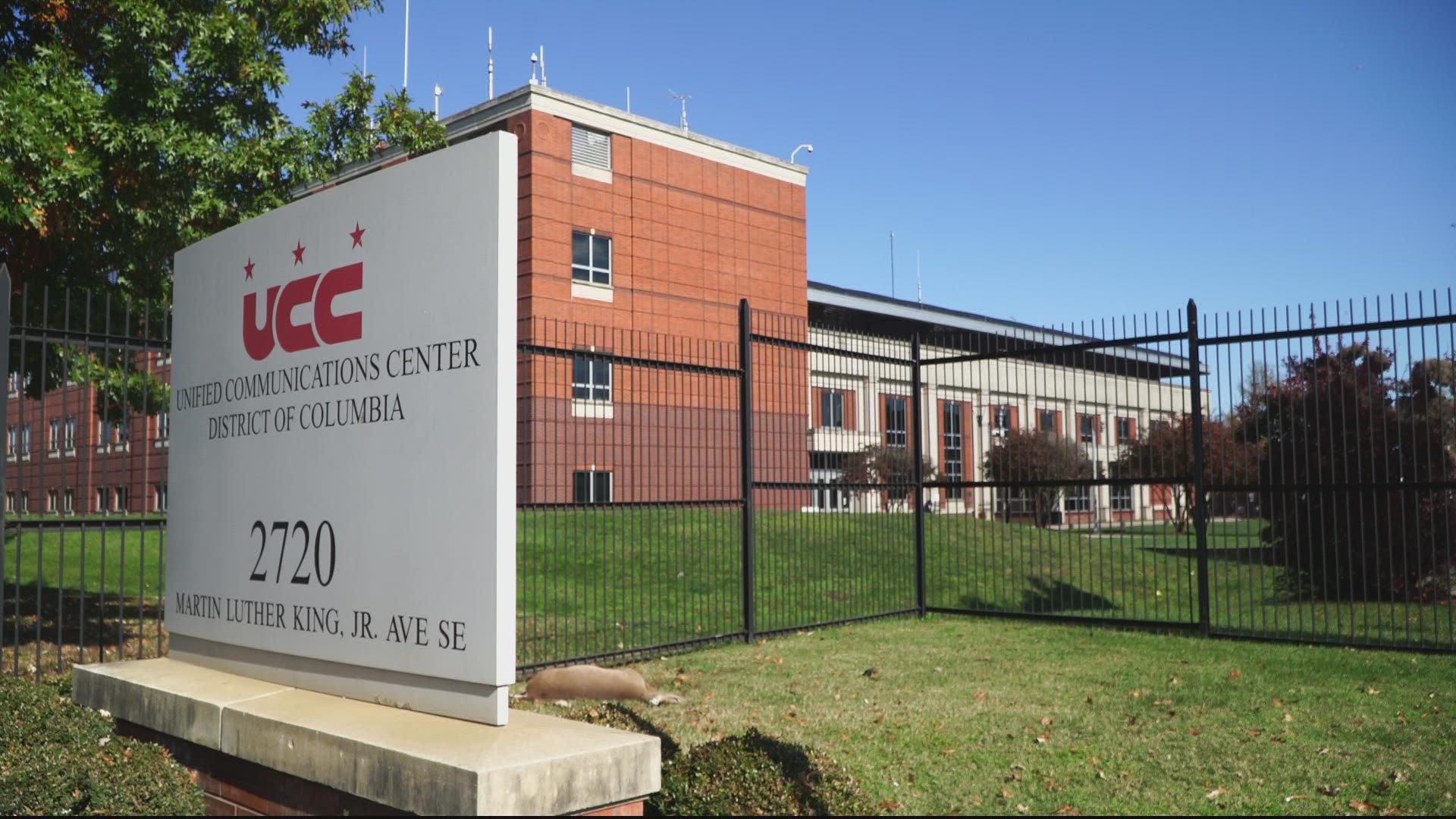WASHINGTON — Amid calls for D.C.'s 911 call center to make changes, the embattled interim director is defending herself and her agency.
Karima Holmes returned to the Office of Unified Communications in March. Since then, OUC has been plagued with a series of mistakes, including ambulances being sent to the wrong addresses and at least five D.C. residents dying while waiting for help to arrive.
In an exclusive interview with WUSA9, Holmes answers what went wrong and why she deserves to lead the agency. Our interview with Karima Holmes Thursday started with a walk-through of the command center floor where two hundred call takers field fire and police 911 emergencies and eighty people answer 311 calls. They even let us listen in on an active police call, as a veteran call taker worked to verify the information and figure out what crews were closest to dispatch.
“It is hard to get intel from people in crisis, it is hard to get right amount of information,” said Holmes. “That’s where training comes in.”
According to a 2021 audit of the Office of Unified Communications, those call takers lacked training and oversight. The administration defines these problems as “missteps:” ambulances sent to wrong addresses, long delays, and loss of life as people including babies waited for help to arrive.
When asked if she would apologize to the families Holmes replied, “Of course, if I know we were the cause of their loss of course I would apologize I reached out to some families. I think what’s more important to these families is that we get it right next time, that we do better, and we add the training.”
Holmes, who started her career as a 911 call taker in her home state of Georgia said the agency is learning from those mistakes, disciplining or retraining employees and reviewing calls.
Holmes said she’s rebuilding OUC, hiring 28 more call takers who just completed their 4-to-8-month training program. She said when she rejoined the agency, OUC was in crisis and down 60 positions including supervisors.
“There’s no way I can sit here as a District resident and let this agency fall that way, so I came back as a duty.”
If confirmed by the DC Council, this will be her second tenure at OUC. Holmes served from 2015 to 2021. She left as the agency was under intense scrutiny following the deaths of DC residents. Critics say a year later, here we are again, with more mistakes, more deaths, and more scrutiny of its leader. When asked why it was worth returning Holmes said there is a bigger fight.
“For D.C. residents, we are here for them,” she said. “We don’t make as many mistakes as it seems. We have way more success and save way more lives that don’t make it to the media. D.C. 911 is not broken. What we do here is hard. We make mistakes and when we do, we remedy them, and we try to do better.”
Holmes said OUC is launching a new training academy and a program called Next Generation 911 that will replace the analog system and allow residents to send pictures, videos, or text messages to 911.
As far as the audit, Holmes said she agreed with most of the auditor’s recommendations and is making progress at meeting the requirements.

